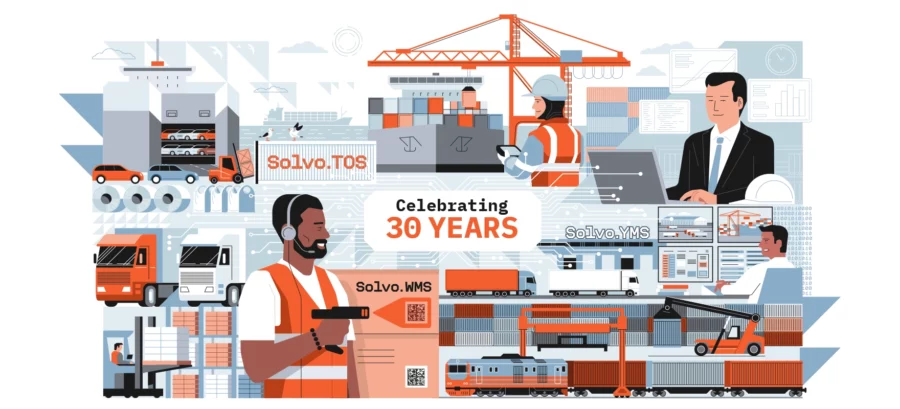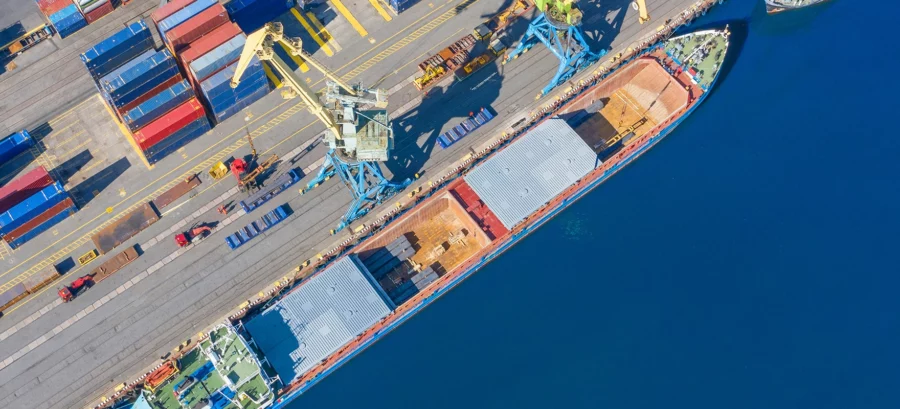From vessel to yard: automate your bulk cargo flow!
Solvo has enhanced the Solvo.TOS terminal operating system with a dedicated module for automated bulk cargo handling. The solution enables operators to efficiently manage bulk cargo arriving via sea, rail, or truck, including storage, internal transfers, and further shipment — all with full document traceability and compliance.
Bulk cargo can now be processed in parallel with general cargo, providing additional flexibility for multi-purpose terminals. The solution works with Oracle and PostgreSQL database management systems.
Key Features of the Bulk Cargo Module
Streamlined Bulk Cargo Registration
The system offers two ways to register the incoming cargo:
- Based on the weight specified in the shipper’s documents.
- Based on the vehicle’s gross weight.
Cargo can be received in full or in partial shipments—ideal for large consignments processed over several shifts. Solvo.TOS automatically allocates available storage cells and supports redirection to an alternative warehouse if needed.
The system excludes packaging and dimensional criteria for bulk cargo, focusing instead on weight characteristics and relevant handling operations (e.g., weighing).
Real-Time Tallyman Interface
Cargo data can be entered through the standard PC interface or via an Android tablet.
The mobile app supports real-time operations at the inspection site, helping tallymen:
- Enter cargo information instantly,
- Photograph cargo condition,
- Store metadata directly in the Solvo.TOS database.
This reduces manual errors and improves visibility of cargo integrity.
Unified Handling Across All Fronts
All bulk cargo operations—whether at sea, rail, or truck front—follow the same logic, making the system intuitive and easy to master.
Convenience Features for Operators
- Comprehensive cargo tracking: Access a full cargo history, including receiving, shipping, and inventory data.
- Smart assistance: The system suggests acceptance acts and loading sequences based on weight criteria.
- Weighing support: Automatically records and generates weighing documentation.
- Flexible dosage control: Supports both planned and actual weight shipment tasks.
- System integration: Enables seamless exchange of cargo data with internal and external platforms.
- Regulatory reporting: Generates all required documents, tailored to bulk cargo operations.
Support for Diverse Cargo Types
Solvo.TOS supports automated processing rules and storage logic for a wide range of cargo types:
- Bulk goods (fertilizers, grain, pellets)
- Bagged/boxed goods (cacao, sugar, rice)
- Construction materials, sawn timber, and roundwood
- Ferrous and non-ferrous metals
- Food products (including perishables)
- Paper and pulp
- Scrap metal, Ro-Ro, and containerized cargo






